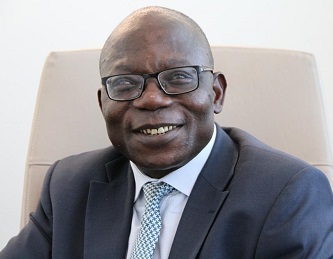The Menace of Corruption and Financial Crime in West Africa: A Call for Regional Collaboration and Capacity Building
The Economic Community of West African States (ECOWAS) has identified corruption and financial crimes as significant impediments to the region’s economic and social progress. Despite advancements in democratic governance, corruption continues to pose a substantial threat to stability and development across many member states. Research indicates that Africa suffers a staggering annual loss of $88.6 billion due to corruption and illicit financial flows, representing 3.7% of the continent’s GDP. This alarming statistic underscores the urgency of addressing this pervasive issue. The increasing adoption of cryptocurrencies and other digital financial systems has further complicated the landscape, introducing new risks and vulnerabilities that demand specialized skills and knowledge to combat effectively.
Recognizing the transnational nature of these crimes and the need for a coordinated regional response, ECOWAS, in collaboration with the Network of Anti-Corruption Institutions in West Africa (NACIWA) and Nigeria’s Economic and Financial Crimes Commission (EFCC), organized a five-day Regional Certification Training on Financial Investigation for Anti-Corruption Institutions in West Africa. This initiative aims to empower investigators with advanced techniques to tackle the increasingly sophisticated methods employed in financial crimes. The training emphasizes the importance of collaboration, intelligence sharing, and harmonized approaches to effectively confront these evolving challenges.
The pervasiveness of corruption undermines democratic institutions, erodes public trust, and diverts resources away from essential public services such as healthcare, education, and infrastructure development. It creates an uneven playing field for businesses, discouraging investment and hindering economic growth. Furthermore, corruption fuels social inequalities, exacerbating poverty and marginalization. Combating this menace requires a multi-pronged approach involving strengthening institutional capacity, promoting transparency and accountability, and fostering a culture of integrity.
The training program focuses on enhancing the capacity of anti-corruption institutions to conduct thorough financial investigations, trace illicit funds, and prosecute perpetrators. It equips participants with the skills and knowledge necessary to navigate the complexities of digital finance and cryptocurrency transactions, which have become increasingly prevalent in financial crimes. By strengthening the investigative capabilities of these institutions, ECOWAS aims to enhance their effectiveness in detecting, preventing, and prosecuting corruption and financial crimes.
Regional cooperation is paramount in addressing the cross-border nature of these illicit activities. The collaborative efforts of ECOWAS, NACIWA, and the EFCC demonstrate a shared commitment to tackling this challenge collectively. By sharing intelligence, harmonizing methods, and working together, these organizations can create a more robust and coordinated response to combat financial crimes and promote good governance within the region. This collaborative approach is crucial for addressing the complex and interconnected nature of financial crimes, which often transcend national borders.
The ECOWAS Vision 2050 emphasizes the importance of addressing corruption and illicit financial flows as integral to achieving sustainable development and regional stability. By investing in capacity building and fostering regional cooperation, ECOWAS is taking proactive steps to create a more transparent and accountable environment conducive to economic growth and social progress. This commitment to tackling corruption is essential for creating a prosperous and stable future for West Africa, where resources are utilized effectively for the benefit of all citizens. The fight against corruption is not merely a legal or regulatory issue but a fundamental prerequisite for achieving sustainable development and ensuring a brighter future for the region.


